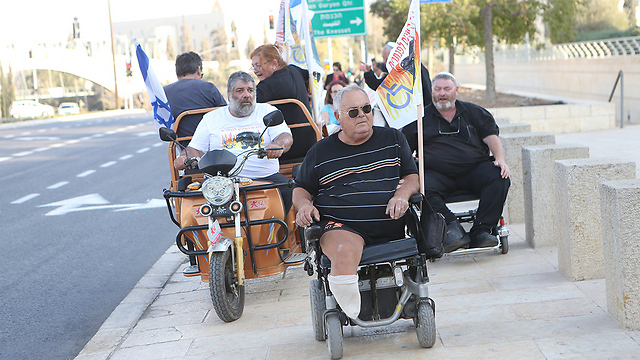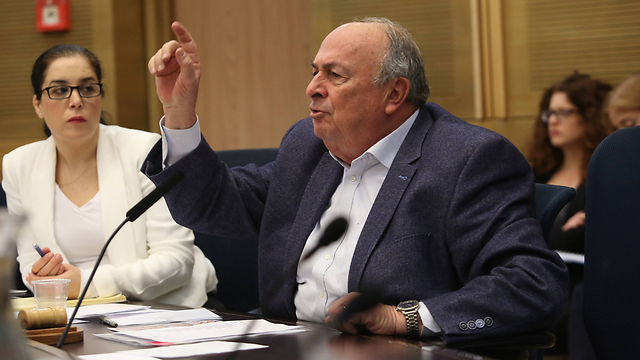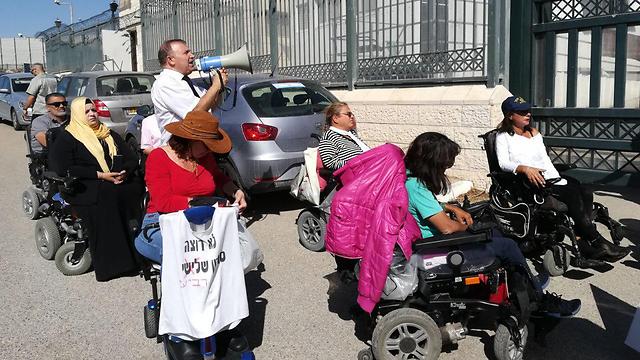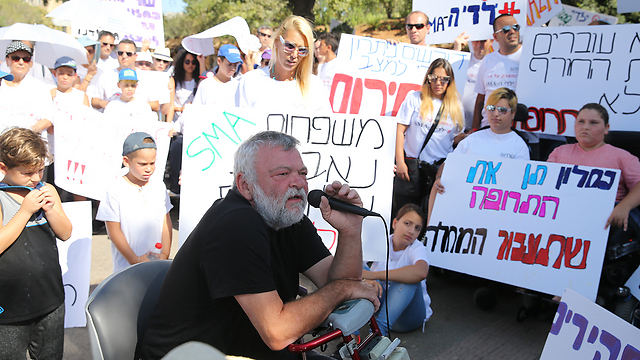Disabled organizations that signed an agreement with the government to increase disability benefits are now threatening to resume their struggle after it became apparent the first stage of the benefits increase was unlikely to go ahead in January 2018 as planned.
Over a week has passed since the beginning of the Knesset's winter session, but so far the agreement, which was signed at the end of September, has yet to be put on the agenda of the Labor, Welfare and Health Committee.
In a response to a parliamentary question by MK Ilan Gilon (Meretz), who was party to the negotiations, committee chairman MK Eli Alalouf (Kulanu) said the agreement would not be implemented until all disabled groups were on board.

"We are promoting several parallel bill proposals to raise disability benefits, which will be ready soon after we reach agreements with all disabled groups," Alalouf said. "We're doing all we can to reach these agreements soon, in conjunction with the government and the disabled groups."

A faction of the disabled protesters has refused to accept the agreement, claiming they were not party to negotiations and coming out against the fact it does not raise disability benefits to match minimum wage. They have continued their demonstrations and road blockings.
"If this is how things are going to be, we will return to our struggle and to road blocking," said Naomi Morbia, the head of the Struggle for the Disabled organization, who was one of the six protest leaders to take part in the negotiations. "The Kulanu Party, led by Finance Minister Moshe Kahlon, will bear the severe consequences."
MK Gilon also went back on his position after signing the agreement, returning to his original demand to raise disability benefits to equal minimum wage.
"As of today, October 31, 2017, not even a memorandum has been issued," Gilon wrote in a letter to Alalouf. "We have about two months left to complete the legislative process pursuant to the agreement with the Israeli government. I fear that until the government actually wakes up, it would be too late."
The first stage would've seen disability benefits raised to NIS 3,200 a month.
Gilon explained in his letter that "the agreement's highlight is that on January 1, 2018, the money is supposed to be in the bank. On this date, the first stage of the agreement is supposed to take place. It was agreed the government would promote a bill proposal parallel to my own private bill proposal, which passed a preliminary reading a year ago. As of right now, none of these agreements have been implemented."
Gilon noted that while he was also in favor of reaching an agreement with all disabled groups, "the only way to reach an agreement with them is to pass my bill to compare disability benefits to minimum wage, which has been waiting on your committee's table for nearly a year."
Alex Friedman, one of the protest leaders and the head of an organization called "Disabled, Not Half a Person," was also among the signatories of the agreement.
"The Knesset returned from its hiatus a week ago, and since then it has been dealing with everything except for the most burning issue, which is bringing this agreement to public discussion and implementing it," Friedman said. "This once again testifies to the Knesset having the wrong priorities, putting political matters above human lives. If (the Knesset) doesn't come to its senses soon, we would have to remind them—a disabled person is not half a person. Crumbling walls eventually collapse."
Disabled Panthers, the most prominent organization objecting to the agreement, welcomed Alalouf's announcement that there would be no Knesset discussions on the matter until agreements are reached with them as well.
"All disabled organizations express regret that the Struggle for the Disabled organization is continuing to fight for the terrible agreement, which was reached and not signed," the Disabled Panthers said in a statement. "This agreement leaves the disabled living in poverty, and we will not allow this."
Labor and Welfare Minister Haim Katz has also refused to adopt the agreement. He visited the disabled demonstrators' protest tent outside the Knesset on the first day of the winter session, telling them they deserve benefits equaling minimum wage.
"An agreement was signed while the minister in charge was not in the room, nor were representatives of the National Insurance Institute," Katz said. "We haven't received the data yet, but a government bill will not pass without my approval."
 |




















